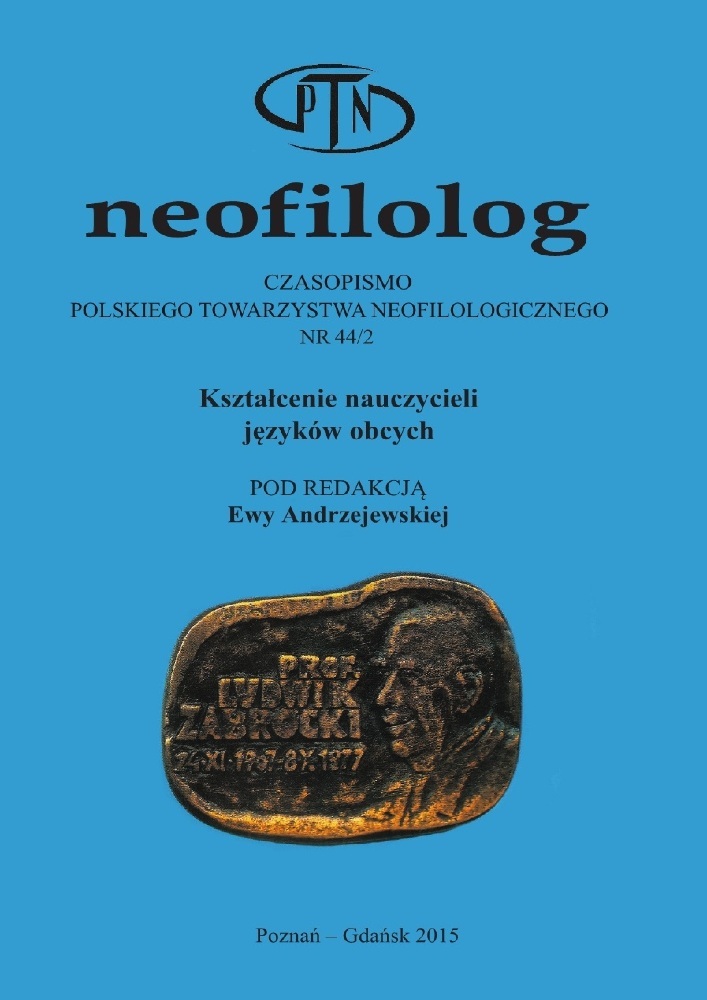Abstrakt
In professional research literature learner identity, motivation and autonomy are frequently the focus of attention. Identity is believed to be responsible for beliefs and opinions about the process of language attainment. Although much more has been written on learner identity, teacher identity is usually marginalized. The study summarized in this paper focuses on students – future teachers of English (N=32)- who attend M.A. EFL seminars to obtain full teaching qualifications. The students were asked to give answers to seven questionnaire statements referring to their present teaching careers and their former studies. It appeared that students coming from educational backgrounds other than university frequently show gaps in knowledge of second language acquisition theory and practice. What is more, as the ELT seminars cater mostly for students from institutions outside the university, considerable remedial work is needed in order to make it possible to prepare the students to write their M.A. theses independently.Bibliografia
Ciepiela, K. 2013. EFL Teacher Identity: From Mental Representation to Situated Per-formance. Łódź: Wydawnictwo Uniwersytetu Łódzkiego.
Dörnyei, Z., Ushioda, E. (red.), 2009. Motivation, Language Identity and the L2 Self. Bristol: Multilingual Matters.
Europejskie badanie kompetencji językowych ESLC. Raport krajowy 2011. 2013. Warszawa: Instytut Badań Edukacyjnych.
Legenhausen, L. 1999. „Autonomous and traditional learners compared: The impact of classroom culture on attitudes and communicative behaviour” (w) Autonomes Fremdsprahenlernen (red. C. Edelhoff, R. Weskamp). Ismaning: Huebner: 166-182.
Michońska-Stadnik, A. 2013. Teoretyczne i praktyczne podstawy weryfikacji wybranych teorii subiektywnych w kształceniu nauczycieli języków obcych. Wrocław: Wydawnictwo Uniwersytetu Wrocławskiego.
Murray, G., Gao, X., Lamb, T. (red.), 2011. Identity, Motivation and Autonomy in Language Learning. Bristol, Buffalo, Toronto: Multilingual Matters.
Norton, B. (red.), 2000. Identity in Language Learning. London: Pearson.
Reinders, H., Lazaro, N. 2011. „Beliefs, identity and motivation in implementing autonomy: The teacher’s perspective” (w) Identity, Motivation and Autonomy in Language Learning (red. G. Murray, X. Gao i T. Lamb). Bristol, Buffalo, Toron-to: Multilingual Matters: 125-142.
Richards, K. 2006. „‘Being the teacher’: Identity and classroom conversation”. Applied Linguistics 27(1): 51-77.
Rozporządzenie Ministra Nauki i Szkolnictwa Wyższego z dnia 17 stycznia 2012 roku w sprawie standardów kształcenia przygotowującego do wykonywania zawodu nauczyciela http://www.mnisw.gov.pl/images/stories/pdf/20120117 DW 22.11.2012.
Zimmermann, B. J., Schunk, D. (red.), 2001. Self-regulated Learning and Academic Achievement: Theoretical Perspectives. Mahwah, NJ: Lawrence Erlbaum.
Licencja
Prawa autorskie (c) 2019 Anna Michońska-Stadnik

Utwór dostępny jest na licencji Creative Commons Uznanie autorstwa – Bez utworów zależnych 4.0 Międzynarodowe.
Przedstawiany utwór (artykuł) upubliczniany jest na podstawie umowy z autorem i na licencji Creative Commons Attribution-NoDerivatives 4.0 International (CC BY-ND 4.0).
Użytkownicy mają obowiązek podania wraz z rozpowszechnionym utworem, informacji o autorstwie, tytule, źródle (odnośniki do oryginalnego utworu, DOI) oraz samej licencji;
- bez tworzenia utworów zależnych,
- utwór musi być zachowany w oryginalnej postaci.
Uniwersytet im. Adama Mickiewicza w Poznaniu zachowuje prawo do czasopisma jako całości (układ, forma graficzna, tytuł, projekt okładki, logo itp.).
